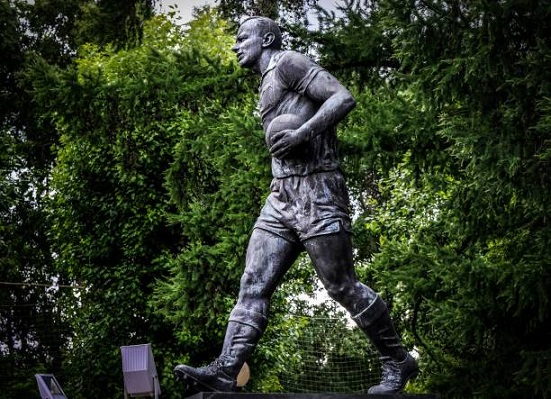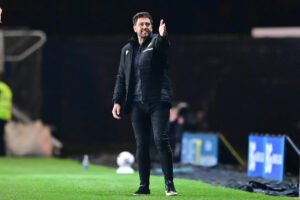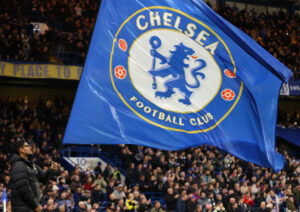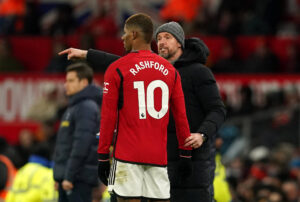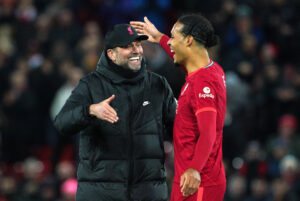Pele, Diego Maradona, Lionel Messi, Cristiano Ronaldo, Zinedine Zidane…. It’s a never-ending list when talking about the greatest there is to play the beautiful game of football. In between all these star-studded names, quite a few get left off. And a few have been forgotten in the sands of time. Eduard Streltsov is one such name that often fails to get mentioned while talking about the greatest to play the game. A player once compared to the Brazilian legend Pele himself, Streltsov was dubbed the Russian Pele owing to the sheer brilliance with which he played the game.
Eduard Streltsov – “The Boy from the Land of Wonder”
Modest Beginnings
Eduard Streltsov was born in Perovo, Moscow, to a Russian soldier, Anatoly Streltsov, and a Russian factory-working mother, Sofia Frolovna. Young Eduard was dealt a blow in his personal life when his father decided to remain in Kiev following the end of the Second World War. With only his mother on his side, Eduard had to grow up without a father due to the sudden turn of events.
The Fraser Cutting Instruments Factory played a huge role in his ascendance to national fame. Young Streltsov took his first step into football in the factory, playing and following his favorite team Spartak Moscow. Eduard’s talent quickly gained recognition, eventually becoming the factory’s youngest player at the age of 13. Three years later, Streltsov caught the eye of Torpedo coach Vasily Provornov during a friendly match between the youth team of Torpedo Moscow and the Fraser Cutting Instrument Factory team. The encounter was a turning point in the young Streltsov’s life. He left the factory to join the lesser popular Moscow club Torpedo Moscow at the age of 16.
Eduard Streltsov – The Shining Light of Torpedo Moscow
Streltsov was a blessing in disguise for Torpedo Moscow. The boy from Perovo quickly established himself within the Torpedo first team and was an ever-present figure for the Moscow club during the 1954 season. Streltsov burst into life in his second season as Torpedo Moscow finished fourth in the league, scoring 15 goals in 22 games. Young Streltsov was too good and skilled not to be taken notice of and eventually made his international debut in 1955 at the age of 16.
The following season saw Streltsov score 12 goals in 22 matches as Torpedo Moscow finished fifth. He matched his tally from the previous season in seven games less as the Moscow club finished second, their then-highest finish in the league. The forward, still in his teens, wowed domestic and international crowds alike. Streltsov’s dominating performances even earned him a seventh-place finish in the 1957 Balon d’Or standings at the age of 18. The saying goes, “The bigger they are, the harder they fall.” Such was the case with Eduard Streltsov.
A New Star for the Soviet Union
Stretsov announced himself on the international stage with a hat-trick against Sweden on his debut. A second hat trick followed the next game as the Soviet Union thrashed India 11-1. In his first four international matches, Streltsov scored seven goals. The world was witnessing a special talent taking flight.
The 1956 Olympics established Streltsov as a name to reckon with. The forward scored the winner in his first Olympics match as the Soviet Union defeated Germany in their first match. After defeating Indonesia in the quarterfinals, USSR met Bulgaria in the semi-finals. One of the greatest performances in Russian football history was about to unfold.
The USSR found itself 0-0 at the end of 90 minutes, with two men down with injuries. To make matters worse, Bulgaria scored early in the first half of extra time to gain a 1-0 lead against the nine-man USSR. Eduard Streltsov took the centre stage afterwards, scoring the equalizer and setting up the winning goal to steer USSR through.
Astonishingly, Streltsov found himself on the bench in the finals as USSR defeated Yugoslavia in the final. Despite being arguably the best player for the USSR, Streltsov did not receive the gold medal. During that time, only players who had qualified for the finals were eligible for the medals. Nikita Simonyan, who replaced Streltsov in the finals, even offered his gold medal, but the Perovo-born refused it. According to Simonyan, Streltsov refused the gesture by saying, “Nikita, I will win many other trophies” such was Streltsov’s confidence in himself.
With Streltsov at his peak, the USSR qualified for the 1958 World Cup in Sweden. The USSR had been one of the favourites following their exploits at the 1956 Olympics. But a sudden turn of events changed the fortunes for him and the USSR.
The Fall of Eduard Streltsov
Eduard Streltsov had the world at his feet. His skills on the pitch and his handsome looks gave him instant recognition on and off the pitch. But as the old adage goes, the bigger they are, the harder they fall. Streltsov had his own demons. He was known to be a womaniser, an alcoholic, and for leading an extravagant lifestyle. The celebrity lifestyle of the forward started making a negative impression in government circles.
Streltsov finally pushed it a bit too far. During an event attended by Ekaterina Furtseva, the first female politburo member of the USSR, the Torpedo Moscow talisman dismissed a marriage proposal for her daughter. He later allegedly offended her by calling her a monkey. It proved to be a costly mistake for the young Streltsov. Offending the daughter of a politburo member was never going to be tolerated. The remarks finally bit back at him.
Following a warm-up match against England ahead of the 1958 World Cup, Streltsov attended a party hosted by Soviet military officer Eduard Karankhanov despite having to report to authorities at Dynamo Moscow. The decision turned out to be one of the worst in the life of the young forward. The following day, he was in the hands of the KGB. The forward and his two teammates, Mikhail Orgonkov and Boris Tatushin were charged with raping Marina Lebedeva.
Conviction and Prison
Streltsov confessed to the crime after being made to believe that the confession would help him keep his place in the 1958 World Cup. However, the credibility of the case was questionable. According to journalist Jonathan Wilson, then-USSR coach Gavrii Kachalin claimed that the case was influenced by the top brass of the Communist government. The journalist stated that Streltsov’s teammate Nikita Simonyan claimed that his former teammate was taking the blame for someone else. Simonyan said that the alleged incident was consensual but could have been twisted by the authorities. He also revealed the existence of incriminating photos of the two people involved. It is to be understood that the USSR legal system at that time did not need incriminating evidence to convict a person. Journalist Kevin O’Flynn also remarked on the incident, stating evidence from Marina Lebedeva was confusing and contradictory.
Unsurprisingly, Streltsov found himself convicted of the crime and out of the 1958 World Cup squad. A twelve-year prison sentence in the Gulag camps was the inevitable result. Two of his teammates, Mikhail Ogonkov and Boris Tatushin, who attended the party along with Steltsov, appeared as witnesses at the trial. To make matters worse, he was banned from playing all kinds of professional football.
Life in prison was not easy for the teenager. He found himself victimised, spending four months in hospital after suffering injuries from another young inmate. Streltsov could not be kept away from football for long though. The young forward was back on the pitch once again. But in a different environment. The young Streltsov started playing football in prison to calm the atmosphere during difficult times. In 1963, five years into his sentence, Eduard Streltsov was released from prison.
Amateur Football and the Return to the Professional Stage
Streltsov joined the ZiL factory when he was released from prison and began studying automotive engineering. Still banned from professional football, Streltsov began playing for the factory team. The news of Streltsov playing started spreading like wildfire as the ZiL factory started attracting large crowds, both at home and away. Despite being away from the professional stage for almost half a decade, Streltsov still held a captivating presence among the fans. The biggest example of Streltsov’s fandom is an incident at Gorky during the ZiL factory team’s away game.
The ZiL factory’s coach received orders from the hierarchy to not play Streltsov during the factory team’s fixture away at Gorky. When the fans saw the players, they were in shock as they couldn’t find the former Torpedo Moscow man on the pitch. During the first half, fans started rioting and threatening to burn down the stadium all the while chanting Streltsov’s name. Worried about the situation, the coach had his hands tied, forcing him to bring on Streltsov in the second half. Standing ovations greeted Streltsov as soon as he stepped onto the pitch.
With an ace up their sleeves in Eduard Streltsov, the ZiL factory team topped the factory league winning all their 11 matches. Despite playing for the factory side, Streltsov still kept an eye on his beloved Torpedo Moscow, often spotted among the crowd during Torpedo Moscow’s fixtures.
More good news was on the horizon for him. A change in the political landscape saw Nikita Khrushchev replaced by Leonid Brezhnev. Ekaterina Furtseva was a close aid of Khrushchev, and the removal of the latter turned the tide in Streltsov’s favour. Upon taking office, Leonid Brezhnev received thousands of letters from fans, heroes of Socialist Labour, and national Supreme Soviet members urging him to reverse Streltsov’s ban.
Back with Torpedo Moscow
After seven years in the abyss, Eduard Streltsov made his return to professional football just before the start of the 1965 season. Unsurprisingly, Strelstov had lost some of his strength and agility, but his football IQ remained intact. The forward had evolved as a footballer, becoming more experienced and flexible. The returning Streltsov helped Torpedo Moscow to their second league title, five years after their first. In his comeback season, he was only second to teammate Valery Voronin in the Soviet Footballer of the Year voting. The 1968 Soviet Cup soon followed after finishing runners-up to Dinamo Kyiv in 1966.
A recall to the national team was inevitable. Streltsov finally made his international return on the 16th of October 1966 against Turkey. In some eyes, Streltsov’s return came too late as the Soviet Union could’ve recalled him for their 1966 World Cup campaign, in which the USSR finished fourth after conceding a 67th-minute goal to Franz Beckenbauer. World Cups are usually tournaments where the stars distance themselves from the average players. Being the charismatic player that Streltsov was, his presence could’ve had a psychological advantage on the USSR team which may have helped the team beat the West Germans. Then again, football is a game of moments.
He went on to make 16 more appearances for the national team, fittingly playing his final international match in a major international tournament – the 1968 European championship. The footballing career of the forward was nearing its end. Streltsov played two more years of professional football before retiring in 1970. At the end of his professional career, he had made 237 appearances and scored 105 goals for Torpedo Moscow and 38 appearances and 25 goals for the national side.
Post Retirement
Following his retirement, Streltsov ventured into coaching. He returned to Torpedo Moscow as a youth coach and even had a brief stint as the first team manager. The forward bid adieu to the world in 1990 after dying of throat cancer.
A change in Olympic policy saw Eduard Streltsov receive the 1956 Olympics Gold medal in 2006. Torpedo Moscow immortalised the name of their star forward after renaming their stadium after him. The Luzhniki Olympic Complex and Torpedo Moscow erected a statue in his honour. The Central Bank of the Russian Federation honoured the player by minting a two-ruble coin bearing his likeness.
Fans of Torpedo Moscow used to joke: “If Pelé downed coffee as Eduard Streltsov drank vodka, he’d have died.” Jokes apart, it was arguably Streltsov’s thirst for alcohol and women that denied the world a true master of his art. Eduard Strelstov remains one of the biggest “ifs” in football history. He had the potential to rival other players of his generation like the Brazilian icon Pele. But, the lifestyle of the forward took him in a direction that denied him the opportunity.


